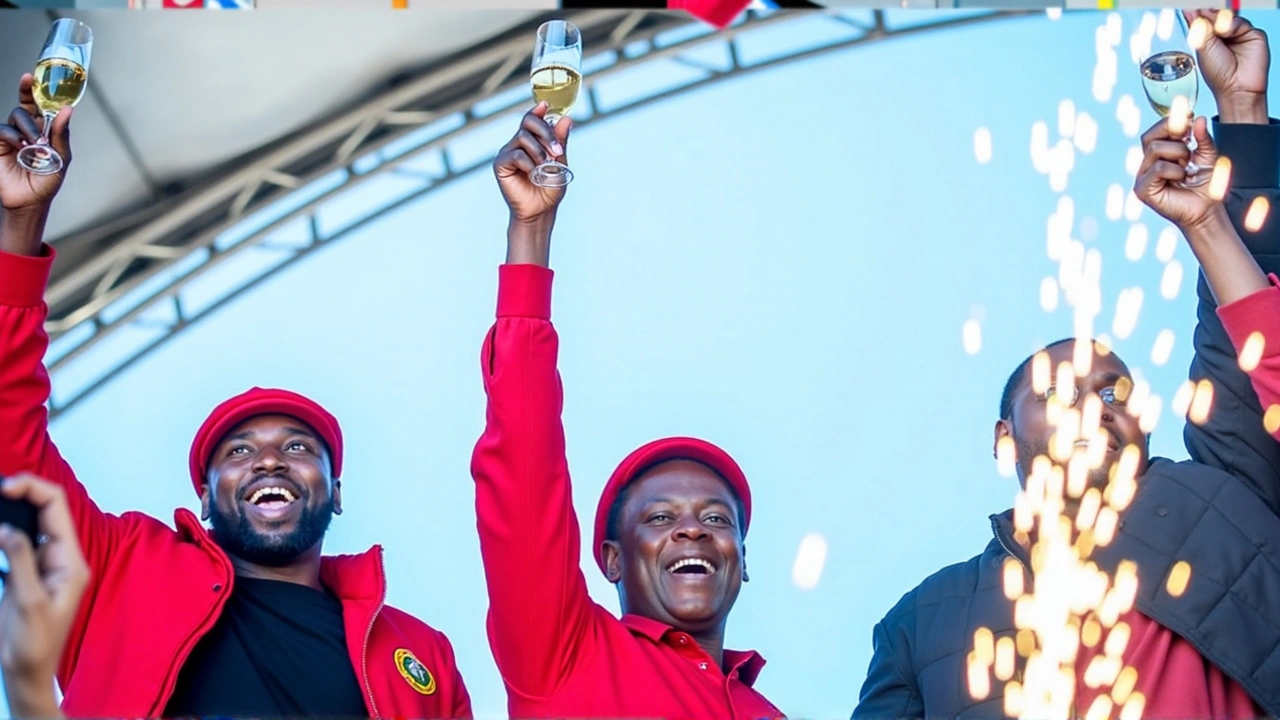Julius Malema – South Africa’s Firebrand Politician
If you’re trying to make sense of South African politics, you’ll keep hearing the name Julius Malema. He’s the man who built the Economic Freedom Fighters (EFF) from a splinter group into a powerful opposition force. Whether you love him or hate him, his speeches, rallies, and Twitter posts shape the national conversation every day.
Early Life and Rise to Power
Born in 1981 in Seshego, a township near Polokwane, Malema grew up in a modest family. He went to school in Polokwane and later earned a degree in public administration. His first taste of politics came while he was still a teenager, joining the African National Congress (ANC) Youth League. By the early 2000s he was already a recognized voice demanding better jobs and services for the youth.
In 2008 Malema became the president of the ANC Youth League, a position that gave him a national platform. He used that stage to criticize senior ANC leaders, especially over corruption and the perceived neglect of poor communities. His bold style—loud chants, sharp slogans, and a readiness to confront authority—made headlines across the continent.
After being expelled from the ANC in 2012 for defying party rules, Malema didn’t fade away. Instead, he teamed up with former ANC allies to launch the Economic Freedom Fighters in July 2013. The new party adopted a red beret as its symbol, echoing the liberation movements of the 1970s. From the start, the EFF promised land redistribution, nationalisation of mines, and free education.
Current Role and Key Issues
Today Malema serves as the EFF’s president and remains its most public face. He leads parliamentary debates, organizes massive street protests, and dominates social media with over a million followers. His agenda focuses on three big topics: land reform, economic empowerment, and anti‑corruption. He argues that without historic land seizures, South Africa will never close the wealth gap.
On the economy, Malema pushes for the nationalisation of mines and banks, claiming it will put profits back into the hands of ordinary South Africans. Critics say his ideas could scare investors, but his supporters point to the growing frustration over unemployment and the fact that many feel the current system favours a tiny elite.
Controversy follows him like a shadow. He’s faced multiple court cases, from hate speech accusations to allegations of money laundering. In 2021 a court ordered him to pay a fine for a tweet deemed hateful, and in 2023 the Hawks opened an investigation into his party’s finances. Yet each legal battle seems to fuel his narrative that the establishment is trying to silence a voice for the poor.
For anyone watching the 2025 elections, Malema’s role matters. The EFF is projected to win close to 15% of the vote, giving it a kingmaker position in a hung parliament. That means his coalition choices could determine whether the ruling party stays in power or a new alliance forms.
If you want to stay updated, follow his official Twitter account, watch the EFF’s YouTube channel, and read daily briefings on Duma Travel News. Understanding Malema’s tactics and ideas helps you see why South Africa’s political landscape feels so charged and why his next moves will be watched worldwide.
Floyd Shivambu's Exit Sparks Internal Rift in EFF Leadership, Says Insider
- Jeremy van Dyk
- 17 Comments
Floyd Shivambu, a key figure within the Economic Freedom Fighters (EFF), has resigned following a substantial dispute with the party's leader, Julius Malema. An insider reveals the fallout began when Shivambu's ambitions to contest the party presidency came to light, marking the end of their collaborative relationship and his subsequent departure. Shivambu also left his position as an MP, signaling deep internal tensions within the EFF.
Read more

